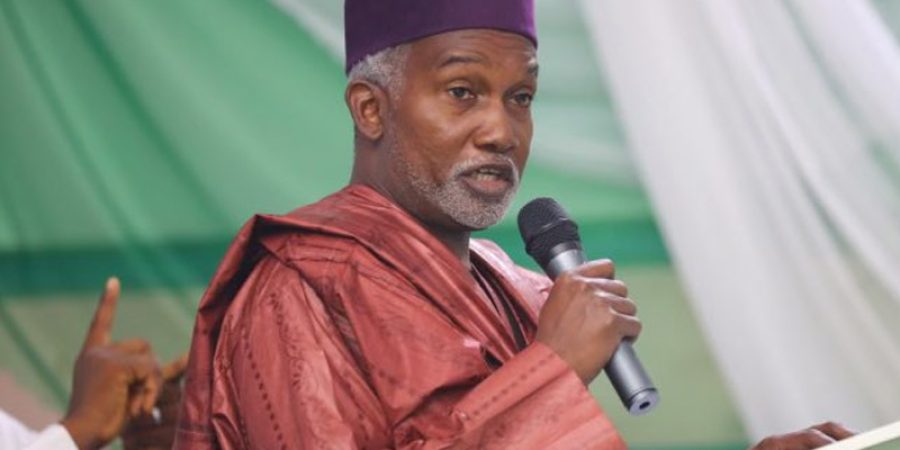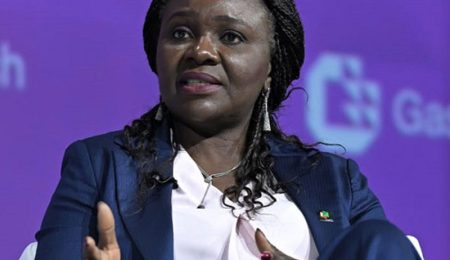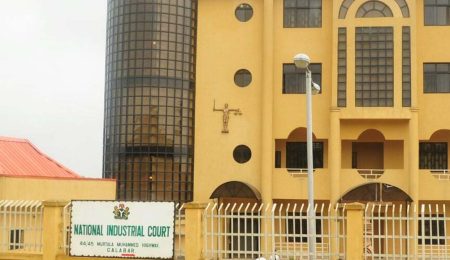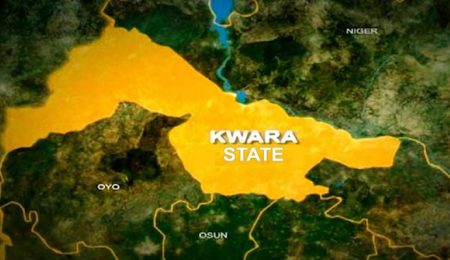The Minister of Foreign Affairs, Yusuf Tuggar, has raised the alarm over the $88.6 billion annual illicit financial flows from the African continent, describing it as a drain on the continent’s much-needed resources.
Speaking at the 4th International Conference on Financing for Development (FFD4) which ended in Seville, Spain, on Thursday, Tuggar stated that there’s currently a $4 trillion annual funding framework for financing sustainable development as agreed upon during the Addis Ababa Action Agenda a decade ago,
The conference, the 4th decadal UN-led summit following the Monterrey Consensus (2002), Doha (2008), and Addis Ababa Action Agenda (2015), is a political blueprint for financing the UN Sustainable Development Goals (SDGs) over the next decade, with actionable proposals on tax reform, debt restructuring, climate finance, and private sector mobilisation.
It was attended by scores of heads of state, although the United States was absent, having formally withdrawn due to objections over climate, tax, and gender equity measures, citing concerns over sovereignty.
However, the event witnessed a strong presence from the European Union (EU) and developing countries, like Nigeria reinforcing a global commitment to multilateral finance.
Extending warm greetings from President Bola Tinubu to the government and people of the Kingdom of Spain for hosting the conference, Tuggar, in his speech, described the event as timely, but added that the world was running out of time, with development assistance from developed nations’ budgets shrinking.
“It’s 10 years since the Addis Ababa Action Agenda set the framework for financing sustainable development, but the gap in funding only increases and is now more than $4 trillion annually. Development assistance budgets in the largest economies have plummeted.
“In those 10 years, we have seen terms of trade and access to markets deteriorate and the re-emergence of tariffs and rival trading blocs. Ratings agencies make or break our economic prospects, but with little transparency.
“The costs of the climate emergency, in terms of remediation measures and increased competition for diminishing resources, have soared. The challenges of violent extremism, organised crime and irregular migration are common for us all here today. But we are on the front line of this ‘everywhere war’ and bear huge – and disproportionate – human and financial costs,” the minister highlighted.
Tuggar argued that there are real world consequences for the decisions taken, or indeed for those deferred, stressing that in the end, those consequences will be felt just as much in established as well as emerging economies.
According to him, helping to level the playing field – or at least, to make it a little less uneven – will help the whole world.
Because Nigeria understands that the process of change must begin at home, the minister noted that the Tinubu-led government has taken bold measures to improve fiscal responsibility and reallocate resources toward productive investments.
To him, one of the earliest reforms of Tinubu’s administration was the removal of fuel subsidies, a tough but necessary decision, as well as the unification of the country’s exchange rate and increasing market transparency.
“These reforms are already bearing fruit. Nigeria’s credit rating has improved, and in 2024, our economy recorded its fastest growth in a decade. Our tax-to-GDP ratio rose from 10 per cent to 13.5 per cent within a year.
“Last week, President Tinubu signed comprehensive tax reform bills into law that seek to raise this ratio to 18 per cent by 2025, introduce a global minimum tax for multinationals, and increase Value Added Tax (VAT) to 12.5 per cent by 2026,” Tuggaradded.
Highlighting the interconnectedness of the world, Tuggar argued that domestic resource mobilisation alone will not suffice.
“ Illicit financial flows drain Africa of $88.6 billion annually. In response, Nigeria has embraced digitalisation, overhauled its revenue systems, and launched a Beneficial Ownership Register to promote financial transparency and fight corruption. We call on all countries to adopt open Beneficial Ownership Registers and support the establishment of a global registry.
“We are also focused on financial inclusion and economic empowerment. Nigeria is scaling up the capacity of development finance institutions like the Bank of Industry (BoI) and Bank of Agriculture (BoA) to support micro, small, and medium-sized enterprises, especially women- and youth-led businesses,” he pointed out.
He recalled that in January, the President announced the establishment of the National Credit Guarantee Company to enable the ambition and initiative of entrepreneurs – and encourage the private sector growth that will deliver jobs and prosperity, peace and stability.
“We have a common interest in giving a real voice in global financial architecture. We have seen the positive impact of the IMF’s reforms of Special Drawing Rights in 2021 and urge a similar spirit of bold thinking to deal with the burden of debt repayments that undermine the prospects of so many poorer countries.
“Nigeria played a vital role in delivering the UN Tax Convention. It’s a much better, much fairer deal than the OECD Two Pillar Tax Initiative. We and many others will continue to protect and promote the UN Tax Convention,” he explained.
Emmanuel Addeh
Follow us on:



